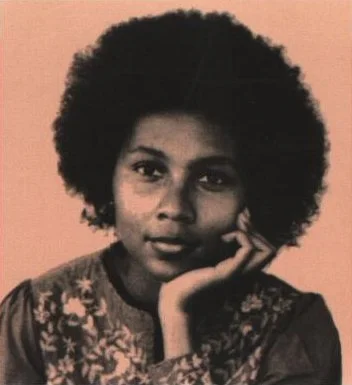8 Authors of Color to Educate Yourself on White Supremacy
Photo of bell hooks courtesy of bell hooks
As social justice issues become more and more embroiled into the institutions and interactions of our daily lives, the question of topical knowledge and education comes to mind. How can we best educate ourselves so that the impacts of our actions and words promote resistance and change rather than damage and oppression? What are the ways we can ensure that we’re doing our best to support our marginalized peers?
Although it’s tempting to answer that last question with “Just ask them,” I’d caution against placing the onus on marginalized people to educate you as if it’s their responsibility to do so—especially if you’re in a position of privilege over them. The best solution, really, is to try and educate yourself. To help with that, I’ve compiled a list of groundbreaking authors and thinkers along with some of their best books. These books offer thought-provoking expository material on systems of power, ranging from structural racism to colonialism to Orientalism, which produce and uphold white supremacy.
bell hooks
bell hooks’ name, one of the most well-known in feminist scholarship, is a familiar one for anyone who’s interested in feminist or gender studies. She’s known for championing issues of race and class within feminism when those issues were widely disregarded by feminists.
Her first book, and one of her most influential, is titled Ain’t I a Woman? Black Women and Feminism (1981). Although she had written it as an undergraduate student, hooks was already teaching at post-secondary institutions at the time of the book’s publishing. In the book, hooks examines how the intersection of racism and sexism have given black women the worst conditions and lowest status of any group in American society. Her critiques of the misogyny of the black nationalist movement and the sexism, racism, and classism of the ongoing feminist movement lend a multifaceted perspective that’s still relevant today. As black women everywhere still experience oppression in almost every sphere, it’s important to learn about the processes that set their social position apart from others and to be aware of the ways our own activism plays into these processes.
Sara Ahmed
A more contemporary feminist of color scholar, Sara Ahmed might be better known to some as the original Feminist Killjoy. A self-described feminist writer and independent scholar, Ahmed runs the Feminist Killjoys blog and conducts research at the intersections of feminist, queer, and race studies. She’s put out eight books of her own, and receives high praise for the theoretical explorations within them.
One of her most celebrated and ingenious works, The Promise of Happiness, was published in 2010 and deals with a cultural critique and deconstruction of what it means to be happy. An interesting part of Ahmed’s analysis is her take on multiculturalism and happiness. Ahmed argues against the thought that today’s increasingly multicultural societies need to strengthen their happiness levels by partaking in unifying nationalist activities; that migrants have an obligation to express a nation’s ideals of happiness. The book as a whole is an intensely thought-provoking venture into the power at play behind the meaning of happiness, one of the most pervasive societal imperatives today.
In another exploit of meaning-creation, Ahmed shows how feminist theory is generated from everyday life and experiences at home and work. Living a Feminist Life (2017) is Ahmed’s latest publication, remarkable in that Ahmed draws on feminist of color scholarship in particular to compose a commentary on survival of racism and sexism. Ahmed’s commentary on the figure of the feminist killjoy, and the empowering manifesto she concludes with, encourage the reader to live and sustain a feminist life by a continuous learning process.
Kimberlé Crenshaw
If you’ve ever used the word “intersectional” to describe your feminism, Kimberlé Crenshaw is a scholar you’ll want to look into. Crenshaw’s work focuses on race and gender. Most know her for her introduction of intersectional theory, an analytical framework which looks at the impact of interlocking or intersecting systems of power (such as race, gender, class, disability, and more) on marginalized people, and for her critical role in the development of intersectional feminism. On Intersectionality: Essential Writings of Kimberle Crenshaw serves as a wonderful guide outlining key essays and articles of Crenshaw’s for newcomers to her work.
Crenshaw also contributed to The Race Track: Understanding and Challenging Structural Racism, a widely regarded book on the reality of racism in the modern day US, in an era many still think of as post-racial. Co-authors Luke Charles Harris, George Lipsitz, and Crenshaw chart the long history of racism in law, healthcare, housing, criminal justice, employment, economics, and education. It’s an accessible read that goes over most of the major issues plaguing black Americans, providing a framework for understanding the workings of structural racism and applying an intersectional lens to racial justice.
Angie Thomas
For a bit of a lighter read, Angie Thomas writes great young adult novels that deal with racial justice. Influenced by the tragic deaths of black children, men, and women such as Trayvon Martin, Tamir Rice, Michael Brown, and Sandra Bland, Thomas switched from writing in the fantasy genre during her undergraduate studies to ground her experiences as a black woman in young adult fiction.
Thomas’s breakout debut novel, The Hate U Give (2017), already has a critically acclaimed 2018 film adaptation starring Amandla Stenberg. The book follows the story of a 16-year-old girl named Starr Carter, who “moves between two worlds: the poor neighbourhood where she lives and the fancy suburban prep school she attends.” The uneasy balance between these worlds is shattered when Starr becomes the sole witness to the murder of her friend, Khalil, at the hands of a police officer. The chaos that ensues in the novel reflects the media storms we see when these injustices occur in real life - and Thomas brings us closer to the heart of the situation than ever by showing us the intimidation Starr faces from all sides.
Leanne Betasamosake Simpson
With multiple books and academic papers on Indigenous issues in Canada under her belt, Leanne Betasamosake Simpson is an accomplished Mississauga Nishnaabeg writer, musician, academic, and activist.
One of her most notable books, As We Have Always Done: Indigenous Freedom Through Radical Resistance (2017), “locates Indigenous political resurgence as a practice rooted in uniquely Indigenous theorizing, writing, organizing, and thinking.” Simpson condemns the destructive logics of settler colonialism and calls for unapologetic, radical Indigenous resistance in rejection of this colonialism and its white supremacy, heteropatriarchy, and capitalist exploitation. In a time when activists such as feminists and LGBT activists often link their activism to the nation-state and nationalist pride (think, for instance, of the celebration that ensued when Canada and the US each legalized gay marriage), Simpson reminds us of the violent historical and ongoing settler colonialism on which Canada and the US have built their legacies. But, more importantly, she voices a vision for political resistance, activism, and transformation rallying against the devastating carnage of colonialism.
Edward Said
Edward Said was one of the most celebrated and controversial literary critics and academics of his time. Palestinian-born and British-and-American-educated, Said applies his Western and Eastern perspectives to his cultural and literary criticism.
Easily Said’s best-known work, Orientalism (1978) views the existing literature on the Orient as a discourse expressing a Western will to control and manipulate the Orient. Said also draws on Antonio Gramsci’s concept of hegemony to explain the conscious cultural and political force of Orientalism in Western media representations of the Far and Middle East. Orientalism is a fascinating critique of the production of “Orientalism” as a hegemonic system of thought perpetuated by Western scholarship and media, and Said’s criticism is quite relevant in today’s Islamophobic political climate.



